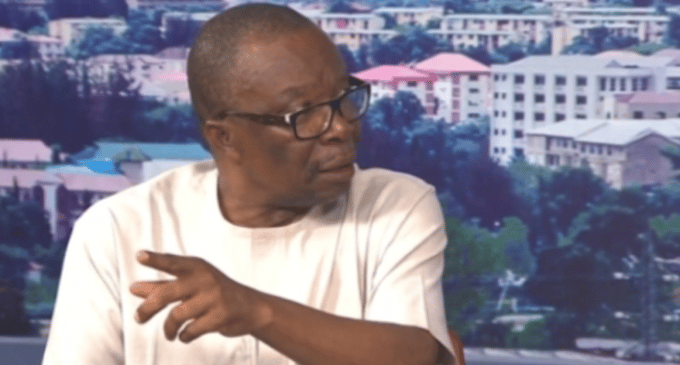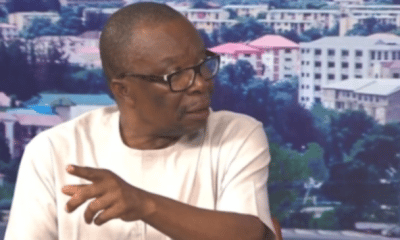Nigeria News
‘We Won’t Allow You To Kill Public Universities In Nigeria’ – ASUU Tells Tinubu’s Govt

The Academic Staff Union of Universities (ASUU) has declared it won’t allow the political class to ‘kill’ the educational sector in Nigeria.
According to the academic union, the education sector in Nigeria, from primary to tertiary levels, is not receiving the necessary attention from the government.
ASUU emphasized that the government has not presented any substantial initiatives, particularly in the education sector, that could lead to positive changes in recovering damages done to the sector in at least the past eight and a half years. Instead, the government has been proficient in making empty promises.
During an interview with the Nigerian Tribune on Thursday, ASUU National President, Prof. Emmanuel Osodeke, urged the federal and other levels of government to take action and implement policies that would alleviate the suffering of the masses in the upcoming year.
“There are so many funds with the Universal Basic Education Commission (UBEC) which belong to various state governments, which they are not accessing because they refused to provide their counterpart funds to claim what is due to them.
“So what this means is that the concerned states are not interested in improving their public schools; they are comfortable seeing the public schools go down while the private ones continue to thrive.
“These are some of what the political class is doing to the public tertiary institutions, too; to kill them the way they have killed public primary and secondary education.
“However, we (ASUU) won’t allow them to kill public universities because if we do, children of the poor may not be able to afford university education again in the country.
“Another thing is; that the Nigerian political class does not have a genuine interest in developing public school education; this is why they have low budgetary allocations to the sector.
“It is of recent that only three states, namely, Oyo, Abia and Enugu, are now showing signs of seriousness to the education sector by allocating a reasonable percentage of their 2024 annual budgets to education,” Osodeke mentioned.
Osodoke said ASUU believes that the three states mentioned have realized that only through good and high-quality education can a rational and beneficial transformation occur, not just in the lives of their citizens, but also in the overall development of the states and the country.
The academic union expressed optimism that these states will adhere to their budget plans and not deviate from them for other purposes.
It added that it would be highly beneficial if the government at all levels could take a comprehensive approach towards the education sector in the upcoming year and effectively address areas of concern, thereby bringing about a substantial and positive change beyond mere verbal commitments.








